
Contributed by Julia Kunin / Like most Americans, I have been distressed by the news coming out of Ukraine. I spoke with Ukrainian Canadian artist Taras Polataiko over a week ago, and as the war escalated, I wanted to check back and see how things were going. Taras and his girlfriend Violetta Oliinyk have gone to Ukraine to take care of family, raise funds for, and organize the delivery of medicine and protective gear to Kyiv’s citizen soldiers. I learned that Violetta�s father and two brothers are now fighting, too. This interview took place on March 14, which was the nineteenth day of the war. If you would like to make a donation to their effort, please message Taras on Facebook.
Julia Kunin: How are things in your city of Chernivtsi? How is your work distributing medicine going? Are you getting everything you need?
Taras Polataiko: During the day it�s quiet but hectic. The city is flooded with refugees from the east, and Kyiv. You can see that the city has changed. During the day it is closer to normal but during the night you hear sirens. So far no bombs have been dropped on our city thank god, but they are falling like nearby. Yesterday they bombed a location quite close to us. It�s not comfortable. Everybody is waking up at night and running to the basement. I think two days ago we decided that whatever. If it�s going to hit us, it�s going to hit us.
JK: Really.
TP: Yeah. Cause it really tires you. The side effect of those bombings is that you are not getting much sleep. In the first 10 days we got maybe 2 hours of sleep a night, and then you kind of start to adjust. We figured that if we woke up and ran somewhere a few blocks away from us to try to get some sleep, we would be getting no sleep. It�s better to stay and say fuck it because at least you can function during the day. Otherwise you are getting disfunctional.
Getting back to fundraising, it�s going well. Our delivery logistics, and network is getting wider and more solid. There are lot of people like us volunteering and delivering. For example three days ago we found a lady in London who wanted to help us with a delivery that couldn�t be shipped within the UK, and she made sure it got transported privately. Generally it all goes to Poland, to my girlfriend�s mom�s school where she teaches. She and her boyfriend are driving the supplies to the Ukrainian border. Then people we know and trust take the supplies to Kyiv. We are focusing on Kyiv because a lot of friends of mine are there. It�s personal for us. They are volunteering, they are part of the civilian defense and are fighting there. As a result we know exactly what is most needed at the moment, so we are able to order it and get it there quickly.

JK: How is Violetta’s work going?
TP: Violetta is relentless. It�s because of her that I�m in this constant overdrive. We just ordered that important portion of meds from London, it�s coming to Poland. so�I thought we could relax.� The next five minutes she�s on the phone and involving me in another effort.� She makes me five times as effective as I would be if I was doing it on my own. I�m not really sure what I would be doing if it wasn�t for her.� I would be doing something but it would not be the same. She�s great, she�s a motor.


Taras told me that the expression used by the soldiers on Snake Island against the Russian warship is on billboards and even tattoos.
JK: It seems important that you do this, rather than fight. People are finding creative ways to help Ukraine.
TP: Yes. Violetta�s brothers are kind of more into fighting. They went to the east to fight in 2014 so they have experience. They kept saying �this not over, this is going to be a serious war.� They would start talking about which guns are more effective, they were loading me with that militaristic stuff I was getting tired of back then, and all of a sudden I�m interested now.
That�s how war changes you. You want to survive and you think of so many things people say, that may have been said before. You can lose the war, but you don�t have to lose your freedom. You can even be defeated physically, but if you don�t accept it, you have not lost. When you surrender, then you have lost your freedom. But of course you want to do everything so that it doesn�t come to this choice. Are you going to become a martyr because you have no armaments? Of course you need force to protect yourself. Even when someone comes with a gun and asks you to recognize their rule over you, you can say fuck off. And they shoot you, but you died a free man, and that�s important.

JK: [Long pause to take that in]. Do you have enough supplies?
TP: Compared to the east and south of the country, we are luxuriating. I�m kidding, but here it is the very west of the country, it�s 30 km from the NATO border. Foodwise we are ok. There are certain brands tthey don’t have anymore but it�s ok here. It breaks my heart to see what�s happening in the rest of the country. Mariupol is a total horror. They are just destroying it. I don�t know if you remember what they did in Aleppo, Syria. It seems like they are intent on doing the same here in Ukraine. It�s just brutal.
JK: It�s terrifying. The Russians are carrying out a genocide, it needs to be stopped.
TP: It is genocide. It should be called that. They�re losing on the ground even though their army is so many times bigger, so they just start killing children? What is that?
JK: I hope they pay for these war crimes. We are all hoping for a solution. The optimistic view is that the Russians army and economy are weak and they will lose. That’s why they are using all the bombing — to kill the morale and will of the Ukrainian people.
TP: They are trying. It�s hard, you try to keep it together and just focus on doing things but once in a while it overwhelms you. You know people have relatives and family and friends in those places. It�s hard to be like a soldier all the time, �keep calm and carry on.” That�s what they are trying to do, to break your will. I think the calculation is to create a certain segment of the population that will demand Zelensky surrender, but surrender is not an option. So many thousands of people have died already. On the other hand, you have 2000 civilians dead in Mariupol alone. It�s a tough choice. Personally, I�m heartbroken about what�s happening in Mariupol but we have to carry on, otherwise we lose the war.
JK: What’s happening with Ukrainian art, artists?
TP: We’re not even thinking about art. It�s pure survival. I�m just fundraising, ordering and shipping. I kind of forgot that I�m an artist. We have to prioritize. And art is a luxury. It�s a privilege. It�s about existence, and if we don�t survive there is no art anyway. I decided to help civilian defense and that�s what I�m doing, I�m an independent artist but a lot of friends and colleagues working at the museums are taking things off the walls and hiding them in the basements, a lot of that is happening. A lot of artists I know from Kyiv and Kharkiv are now refugees in Poland. I�m not fleeing because if everybody does, what is going to happen?
You�re probably interested in art and creativity in this situation. I was talking about this with Violetta the other day, that ironically the first art by Ukrainian artists about the war will most likely come out of those artists who were not here, who are in residencies in Europe now. It�s just so stressful what we are going through here on the ground. The last thing we are thinking about is making art. It�s kind of a bit unfair I think, but that is how it is going to happen.
The other thing that really pisses me off is that we hear that some German curators, western curators are organizing shows of Russian and Ukrainian artists. What the fuck? It�s just so out of it. Can you imagine someone getting a grant in the midst of WWII to organize a show of German and Jewish artists? It�s just unbelievable. I don�t want to f..ing see any Russians at any conference. Whatever it�s going to be, it�s going to be an enabling narrative. It�s going to be like stomach worms snaking their way through our blood.
JK: Can you talk about Ukrainian identity?
TP: For Ukrainians it�s about their very existence. After that it�s about remaining free people. We know well what Russian slavery and subjugation is like. We�ve been colonized by them, and that�s why a lot of people are hearing of Ukraine for the first time. Because Russian imperialism subjugated Ukraine for centuries. It�s about complete disappearance. They are trying to deny us our existence, it�s black and white for us. The Russians already revealed their plans to bomb the whole infrastructure of Ukraine in three days. They would take Kyiv, put in a puppet government, build concentration camps and put all the leaders and people of influence there and deport them to Russia, behead the society and basically rule it by terror. They�ve done it before. That�s what we don�t want to happen here.
My daughter is in Toronto. She calls often now. She�s completely Canadian now, and she�s asking questions. I�m thinking how do I explain without going very deep into history and identity and all that and I just said this: In a democratic free society everybody has agency, you vote, you have influence, you decide on a lot of what you do. You do most of the things because you want to. Sure some things you can�t do because they are criminalized and there are limits. This is the difference between Russia and Ukraine and part of what we are fighting for, is to have that agency, to have free will as citizens. The Russians don�t have it and they are ok with it. That�s a problem. I�m not ok with it. I don�t want to live as a slave, deprived of my ability to decide for myself, of my will. I�m doing what I�m doing now by choice. I am Canadian and I can easily leave. But I want to be here to do my part because the prospect of being a person without a country of his own terrifies me. Freedom should not be taken for granted. People died for it. That�s very important for citizens of democratic countries not to forget.
About the author: Brooklyn artist Julia Kunin was a Fulbright Scholar to Hungary in 2013 and she received a 2010 Trust for Mutual Understanding Grant to Hungary. She has received a Pollock-Krasner Foundation Grant and had a residency at Art Omi. Recent solo shows include “Rainbow Dream Machine” at McClain Gallery, Houston (2021-2022) and “Mechanical Ballet” at Kate Werble (2021-2022).
Related posts:
Interview with Taras Polataiko, an artist who returned to Ukraine, part 1
Pregame Painting Report: 2019 Whitney Biennial

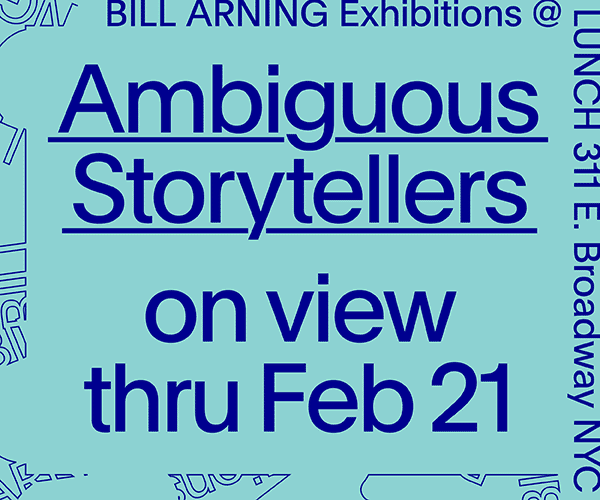


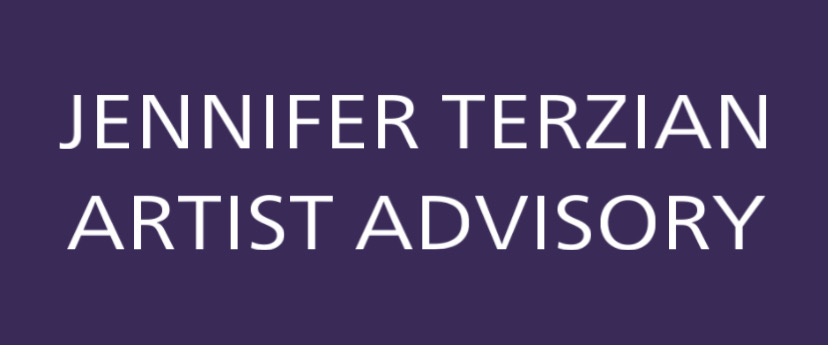
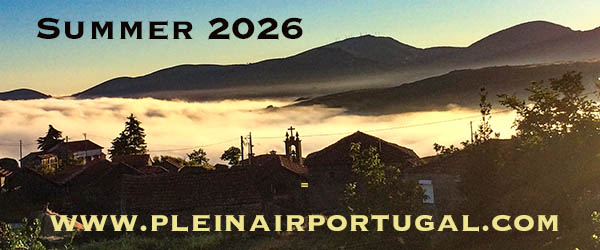
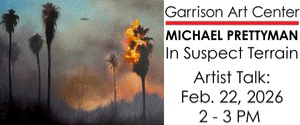
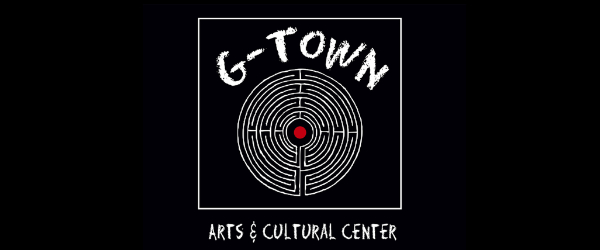











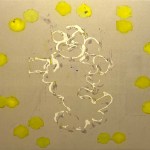

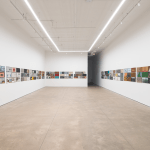


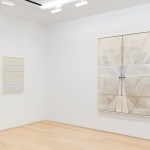
Kudos to Julia Kunin, Two Coats, and, most of all, Taras Polataiko and his fellow Ukrainians. His testimony here is a poignant and valuable part the growing historical record of Putin’s epic criminality and Ukraine’s heroic struggle. It’s a bonus that Taras, like Zelensky himself, is not only artistic but also articulate, passionate, geopolitically aware, and strategically astute. It must indeed be hard to keep cool, but do carry on.
Thank you Julia for this in depth interview; It offers a window into what the Ukrainian people are experiencing and suffering. Taras’ and Violetta’s reasons for staying, the dedication to their country and people, are enlightening and very moving.